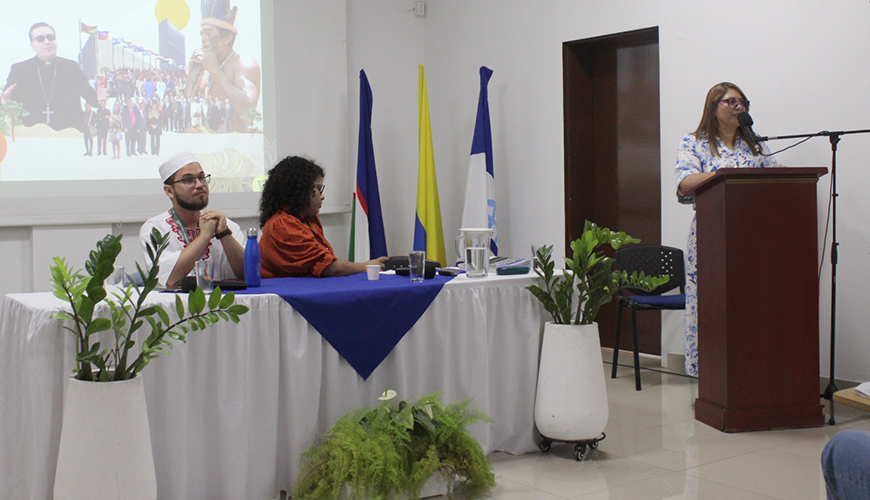The crucial contribution of religious and social leaders to the protection of tropical forests is the theme of the paper presented by IRI-Colombia at the forum “COP16: Territory, Peace and Biodiversity”, held from October 21 to 25 in Cali, and led by Dipaz Colombia, the World Council of Churches, Qonakuy, the Reformed University Corporation, Unibautista, Recapazitando and Tearfund.
Some of the points highlighted by Diana Cristina Carvajal during the second day of the forum, in which key issues of advocacy were addressed during and after the Biodiversity Summit, were the great moral influence and the ability to convene and mobilize religious leaders, as well as the contribution of social leaders in the field of social justice and the defense of the rights of local communities.
“The morality and sense of justice inherent in religious and social leaders are essential to mobilize communities and influence public policies and conservation projects,” said the program officer of IRI-Colombia. He stressed that the moral dimension of the protection of tropical forests is not only a technical or scientific issue, but a deeply moral one, in which religious leaders have a vital role.
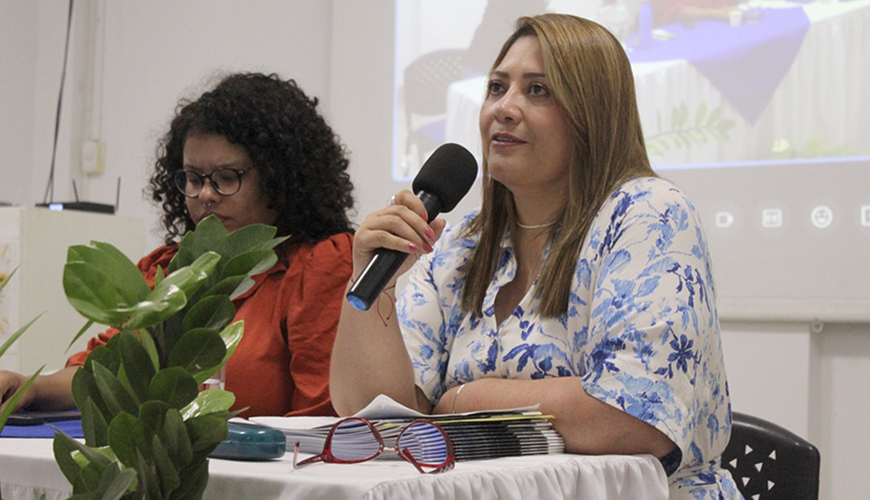 Diana Cristina Carvajal, Program Officer, IRI-Colombia.
Diana Cristina Carvajal, Program Officer, IRI-Colombia.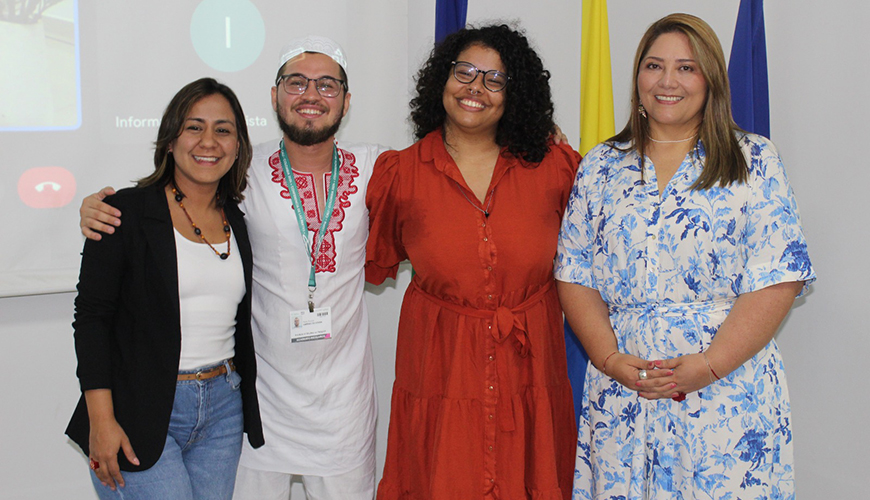 Maryuri Mora, from Unibautista; Paulo Sampaio and Luciana Peterson, from ISER; and Diana Cristina Carvajal, from IRI-Colombia.
Maryuri Mora, from Unibautista; Paulo Sampaio and Luciana Peterson, from ISER; and Diana Cristina Carvajal, from IRI-Colombia.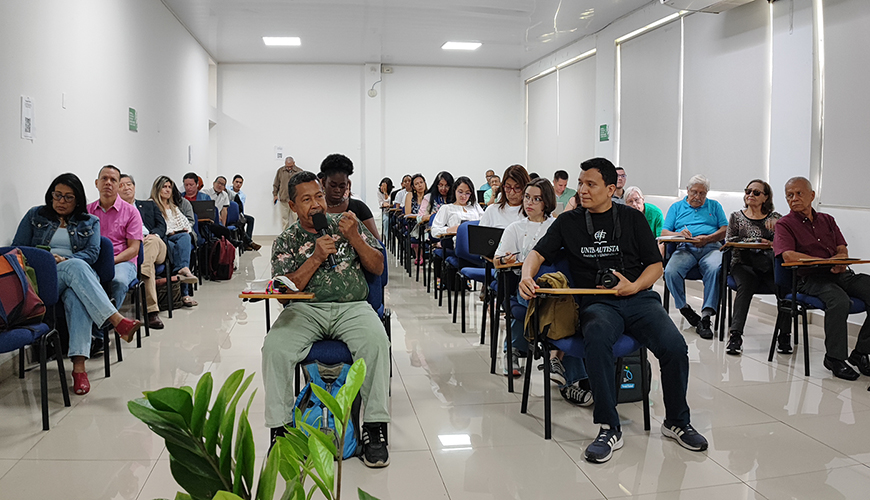 The forum, held at the headquarters of Unibautista in Cali, brought together almost 50 people.
The forum, held at the headquarters of Unibautista in Cali, brought together almost 50 people.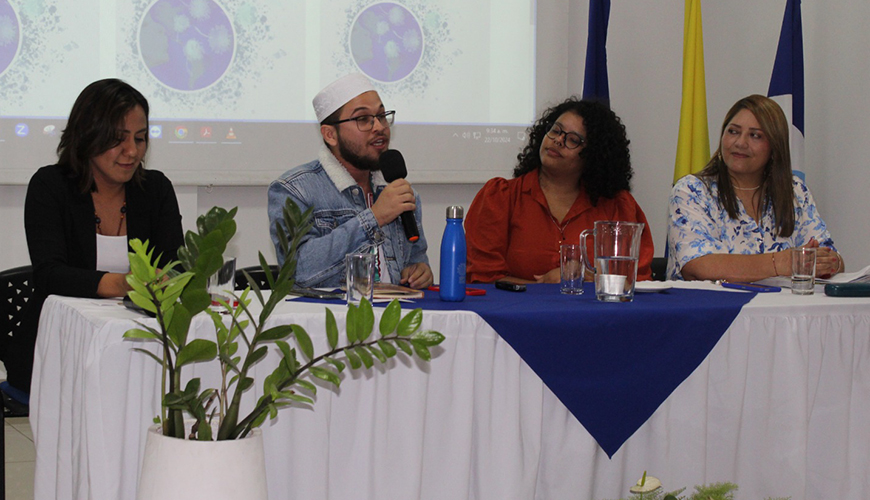 Maryuri Mora, from Unibautista; Paulo Sampaio and Luciana Peterson, from ISER; and Diana Cristina Carvajal, from IRI-Colombia.
Maryuri Mora, from Unibautista; Paulo Sampaio and Luciana Peterson, from ISER; and Diana Cristina Carvajal, from IRI-Colombia.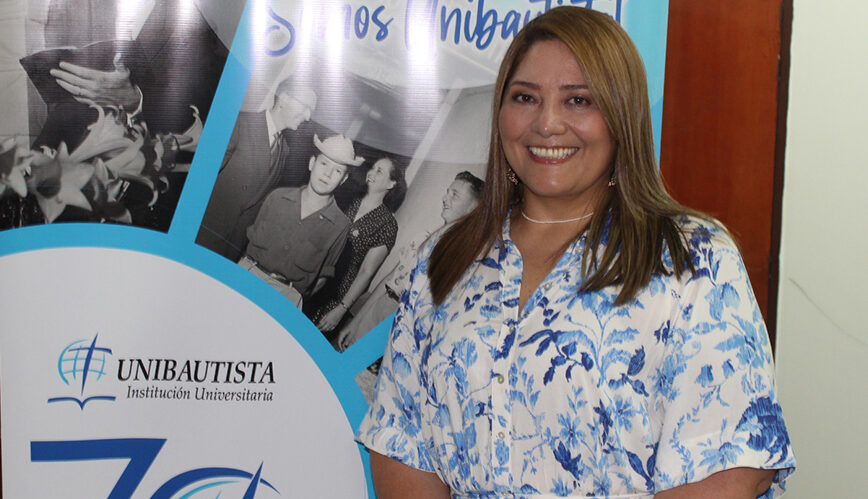 Diana Cristina Carvajal, Program Officer, IRI-Colombia.
Diana Cristina Carvajal, Program Officer, IRI-Colombia.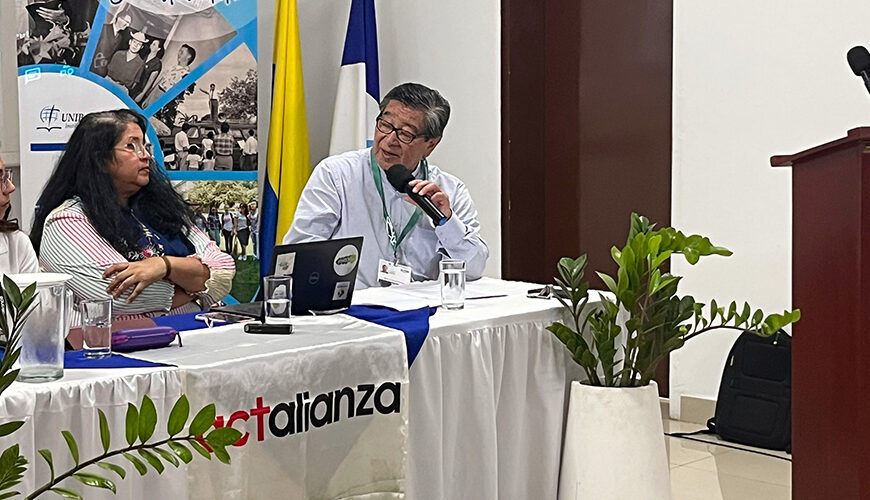 Loida Carriel, from Tearfund, and Humberto Shikiya, from the World Council of Churches.
Loida Carriel, from Tearfund, and Humberto Shikiya, from the World Council of Churches.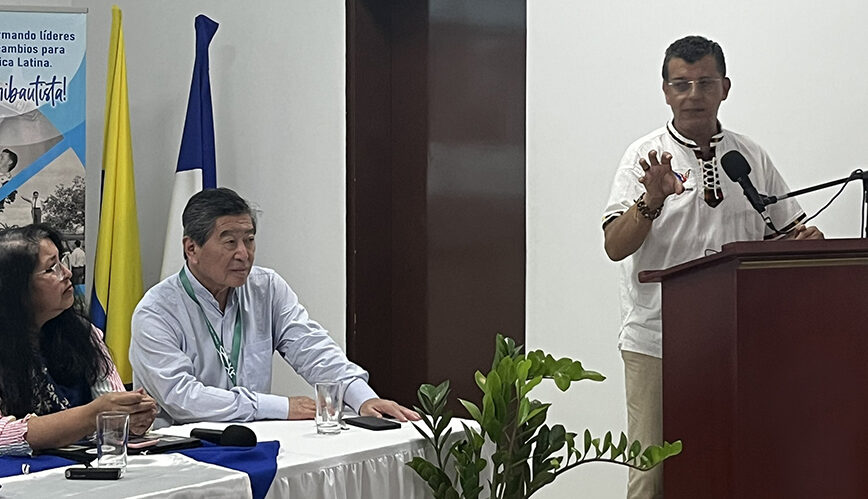 Loida Carriel, from Tearfund; Humberto Shikiya, from the World Council of Churches; and Deacon Alirio Cáceres, from the Ecoespiritualidad platform.
Loida Carriel, from Tearfund; Humberto Shikiya, from the World Council of Churches; and Deacon Alirio Cáceres, from the Ecoespiritualidad platform.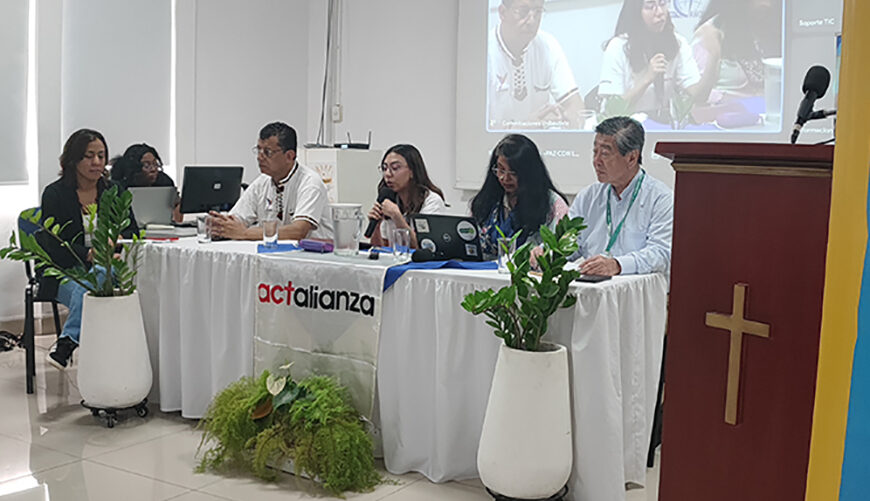 Maryuri Mora, from Unibautista; Deacon Alirio Cáceres, from the Ecoespiritualidad platform; María José Tejedor, from ACT Alliance; Loida Carriel, from Tearfund; and Humberto Shikiya, from the World Council of Churches.
Maryuri Mora, from Unibautista; Deacon Alirio Cáceres, from the Ecoespiritualidad platform; María José Tejedor, from ACT Alliance; Loida Carriel, from Tearfund; and Humberto Shikiya, from the World Council of Churches.
She was accompanied on the panel by Luciana Peterson, pastor of the Baptist church, female activist and communications coordinator of the Brazilian Institute of Religious Studies (ISER), and Paulo Sampaio, political-religious articulator of the Faith in Climate project, of the same institution. “Our time demands of us a prophecy that involves the care of the common home, of the environment, of nature,” said the religious leader, who also referred to the relationship between social justice and socio-environmental care.
In the second part of the day, María José Tejedor, from ACT Alliance; Humberto Shikiya of the World Council of Churches; Loida Carriel, from Tearfund; and Deacon Alirio Cáceres, from the Ecospirituality platform.
While María José Tejedor highlighted the need to thoroughly review and engage in the implementation of national biodiversity plans and the Global Biodiversity Framework, human rights expert and Tearfund’s Latin America team leader, Loida Carriel, addressed the profound impact of plastic pollution on different ecosystems and the potential for advocacy through the mobilisation of faith communities, especially of young Christians, by turning them into agents of political and social transformation.
“It is not only about fighting climate change, but also about how to regenerate nature. That has to do with the economic approaches that we must promote: an economy of life and an economy of the common good,” said the representative of the World Council of Churches and accompanist of the dialogue tables between the Colombian government and the Central General Staff of the FARC EP, Humberto Shikiya, who referred to the relationship between the loss of biodiversity and climate change. Colombia’s vulnerability to the effects of the latter, and the financing of biodiversity and climate protection.
Deacon Alirio Cáceres, for his part, pointed out the close relationship between biodiversity and peace, and highlighted the urgency of declaring nature as a subject of rights and changing lifestyles. “We must put money at the service of human dignity, in the protection of human rights and the care of territories. The financial issue is key, but with a renewed conception of how to use money,” he said.
Read the full issue, in Spanish, of the October 2024 IRIboletín.

